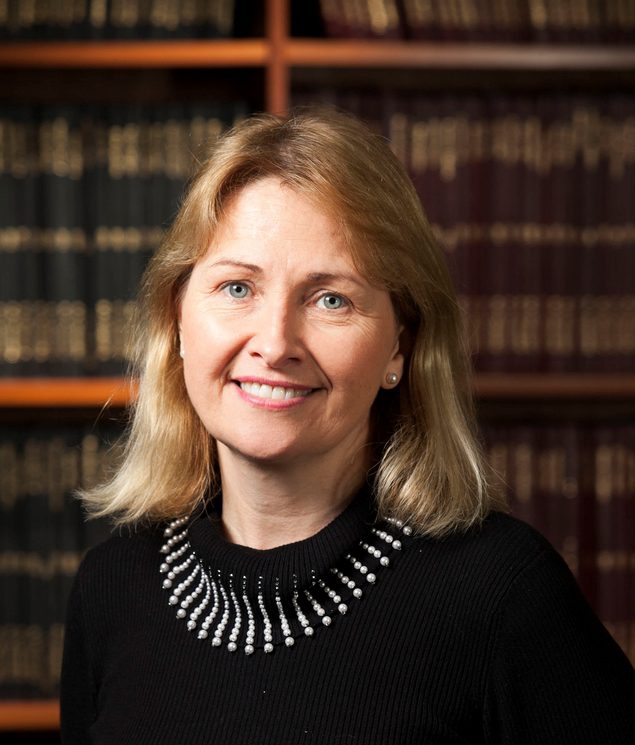Seeds of Change: Women’s Role in Greening European Agriculture
Dr. Maura Farrell’s upbringing was deeply influenced by strong women who played pivotal roles in shaping her views on women in farming and rural life. Her grandmothers, both lifelong farmers, were as connected to the land and agriculture as her grandfathers.
In rural business, Farrell draws inspiration from her mother-in-law, who, after being widowed with four young children, continued to run a feed and fertilizer business in a small Irish town during a time when such roles were uncommon for women. Her resilience and business acumen helped her navigate challenges such as employee strikes, driving lorries to sell potatoes, and annual price battles for wool, feed, and fertilizer. These women not only influenced Farrell’s thinking but also paved the way for today’s rural women.
Farrell, now an associate professor in the School of Geography, Archaeology, and Irish Studies at the University of Galway, focuses her research on the impact of social, cultural, and economic changes on rural inhabitants, particularly women. She notes that despite significant improvements for women in farming and rural areas across the EU, many challenges persist.
She coordinates FLIARA, a multi-country project funded by the EU, aimed at creating a European-wide rural innovation network to support women in shaping a sustainable rural future. The project, with partners in Belgium, the Czech Republic, Finland, Germany, Ireland, Italy, the Netherlands, Slovenia, Spain, and Sweden, will run until the end of 2025.
Rural Innovation
FLIARA is among several EU-funded research teams investigating the role of European women in rural development and farming, and how to better support and encourage their participation as innovation leaders. In most European countries, agriculture is male-dominated, with women running only about 30% of farms and having minimal representation in agricultural associations.
However, change is afoot in Europe’s rural areas, with women increasingly taking on managerial roles in farming and developing innovative rural businesses. They are also crucial in building and strengthening rural communities. The EU supports this trend, essential for achieving the ambitious goals of the European Green Deal, which aims for a cleaner, more sustainable farming sector and thriving rural communities.
Farrell spoke to Horizon Magazine about the vital role women play in driving agricultural and rural innovation and their importance in building a greener, more sustainable future.
Challenges for Women in Rural Europe
Women in rural EU areas face unique challenges compared to their urban counterparts when starting a business or innovative initiative. They often lack basic services and facilities available in urban areas, such as childcare, robust public transport, and reliable broadband. Access to training, education, and financing is also more limited, with many financial institutions hesitant to fund women in business.
Supporting Women to Overcome Hurdles
Farrell emphasizes the need for greater acceptance and support for rural women as entrepreneurs and business leaders. “Rural proofing” across various levels of governance is necessary to improve rural services and facilities. Targeted support, including easier access to training and financial assistance, is also crucial.
Raising Awareness of Women’s Contributions
Increasing visibility for female-led innovation in rural areas is vital. It helps change the narrative about women’s roles in farming, rural entrepreneurship, and business. Successful female farmers and rural entrepreneurs across Europe serve as role models, encouraging more women, especially younger ones, to engage in these fields. FLIARA aims to showcase female leaders in innovation, influence policy, and create a positive narrative around women in farming and rural areas.
Concrete Examples of Female-Led Innovation
Female-led innovation includes new ideas, products, services, or processes that drive positive change. Women play a crucial role as leaders of such change, from farm diversification to novel or innovative farming practices and community-based initiatives with economic, social, and cultural impacts.
FLIARA has established a Europe-wide network of 200 female innovators, including 20 “ambassadors” traveling across Europe to inspire and share best practices with female farmers.
Supporting Female-Led Agriculture
Since 2023, the EU’s Common Agricultural Policy strategy explicitly mentions gender equality and increasing women’s participation in farming and rural life. While only Ireland and Spain have proposed direct measures to support women in farming, several other EU countries have broader rural development policies encouraging greater female participation.
Diverse Roles Across EU Countries
Women’s roles in agriculture and rural life vary widely across Europe. In Lithuania and Latvia, nearly half of all farms are managed by women, whereas, in Malta, Denmark, and the Netherlands, women account for less than 10% of farm managers. In most EU countries, men are the primary landowners.
Women’s Contribution to Eco-Friendly Farming
Achieving the European Green Deal’s goals requires the participation of both men and women. Women are increasingly committed to building a sustainable, eco-friendly society and can significantly contribute to developing new, sustainable practices.
Women’s Strengths in Sustainable Farming
Women often have a strong awareness of environmental issues and are seen as key drivers of sustainable farming practices. Their creativity and problem-solving abilities enable them to excel in diversification, such as agritourism, craft industries, and artisan food production, showcasing strong entrepreneurial and business skills. Rural society needs this kind of innovation to overcome future challenges.


